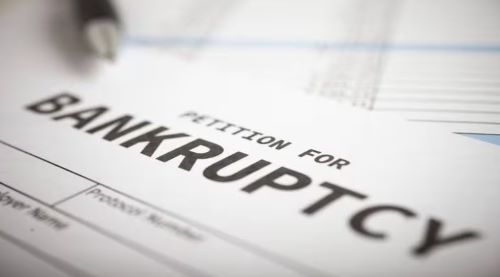

In today’s financial climate, managing debt is an ordinary part of many people’s lives. However, while most creditors adhere to lawful practices when collecting debts, some overstep legal boundaries and engage in what is known as creditor harassment.
This harassment can severely affect one’s quality of life, causing undue stress and anxiety. It’s crucial to recognize when these practices cross the line and when it’s appropriate to seek legal help from a creditor harassment lawyer who can provide guidance and defend one’s consumer rights under the law.
Understanding Creditor Harassment
Understanding creditor harassment is crucial in protecting oneself from undue stress and legal infringements. The FDCPA also prohibits debt collectors from using deceptive methods to collect debts, such as misrepresenting the amount owed or the status of the legal actions they can take. Consumers need to know that they have the right to request a debt validation, which requires the creditor to provide proof of the debt’s legitimacy. Consumers can legally request that the debt collector cease communication, which must be honored, providing a formal respite from harassment. These protective measures ensure that debt collection practices are conducted fairly and respectfully, safeguarding consumer rights.
Recognizing the Signs That Indicate It’s Time to Consult a Lawyer
When dealing with persistent and aggressive creditors, it might only sometimes be apparent when the situation warrants legal intervention. Signs that you should consider consulting a creditor harassment lawyer include receiving threats of violence or arrest, attempts to collect more than you owe, being contacted at work after asking them to stop, or the use of abusive language. A lawyer can help by informing you of your rights and possibly mediating the situation to stop the harassment. If creditors falsely represent the amount of debt or the legal status of a debt, this also signals the need for legal expertise. Furthermore, repeated calls or communications after you formally request they cease are illegal under the FDCPA and should prompt you to seek legal advice. Engaging a lawyer can also prevent creditors from using unfair or deceptive practices that might otherwise go unchecked.
Documenting Interactions with Creditors
One of the most critical steps in preparing for potential legal action against harassing creditors is meticulously documenting all interactions. This documentation should include the date, time, and content of all communications via phone, email, or mail. Keeping detailed records can provide substantial support in legal proceedings, demonstrating the extent and nature of the harassment. Documentation should also include any witness accounts or third-party testimonies about the harassment and copies of any written correspondence, such as letters or emails, that verify claims of harassment. Storing these documents safely and organized ensures they are readily accessible for legal proceedings or when meeting with your lawyer.
Legal Protections Against Harassment
Numerous legal protections are available to consumers facing creditor harassment. The FDCPA provides a robust framework designed to protect consumers from abuse in the debt collection process. This act outlines prohibited actions and sets standards for how debt collectors should conduct themselves. Familiarity with these protections can empower consumers to stand against harassment and assert their rights. It’s also beneficial to understand the role of the Telephone Consumer Protection Act (TCPA) and the Consumer Credit Protection Act (CCPA), which offer additional layers of protection against harassment and exploitation. Awareness of these can enhance your defense and strategy in dealing with aggressive creditors. These professionals work to raise public awareness about consumer rights related to credit reporting, educating people on how to protect themselves and advocate for their rights effectively.
Filing a Complaint and Seeking Legal Redress
If the harassment continues despite requests to stop, the next step is to file a formal complaint with the Consumer Financial Protection Bureau (CFPB) or your state’s attorney general’s office. These agencies can provide avenues for recourse and, in some cases, mediate on your behalf. In situations that require more direct action or when significant damages have been suffered, engaging a credit report lawyer to pursue legal redress might be necessary. This could include suing for violations of the FDCPA, seeking monetary damages, and demanding corrective action. It’s also crucial to note that filing a complaint can lead to broader investigations, potentially benefiting other consumers affected by similar practices. In some cases, your action can lead to significant regulatory changes or large-scale settlements that address widespread abusive practices by creditors.
No one should have to endure creditor harassment to manage their debt. Recognizing when such practices cross the line into harassment and understanding your rights are the first steps in taking action against these transgressions. By documenting interactions, understanding legal protections, and knowing when to seek the expertise of a credit report lawyer, individuals can protect themselves from overzealous creditors and maintain their peace of mind. Remember, the law is on your side, and there are effective ways to challenge creditor harassment and reclaim your rights.


